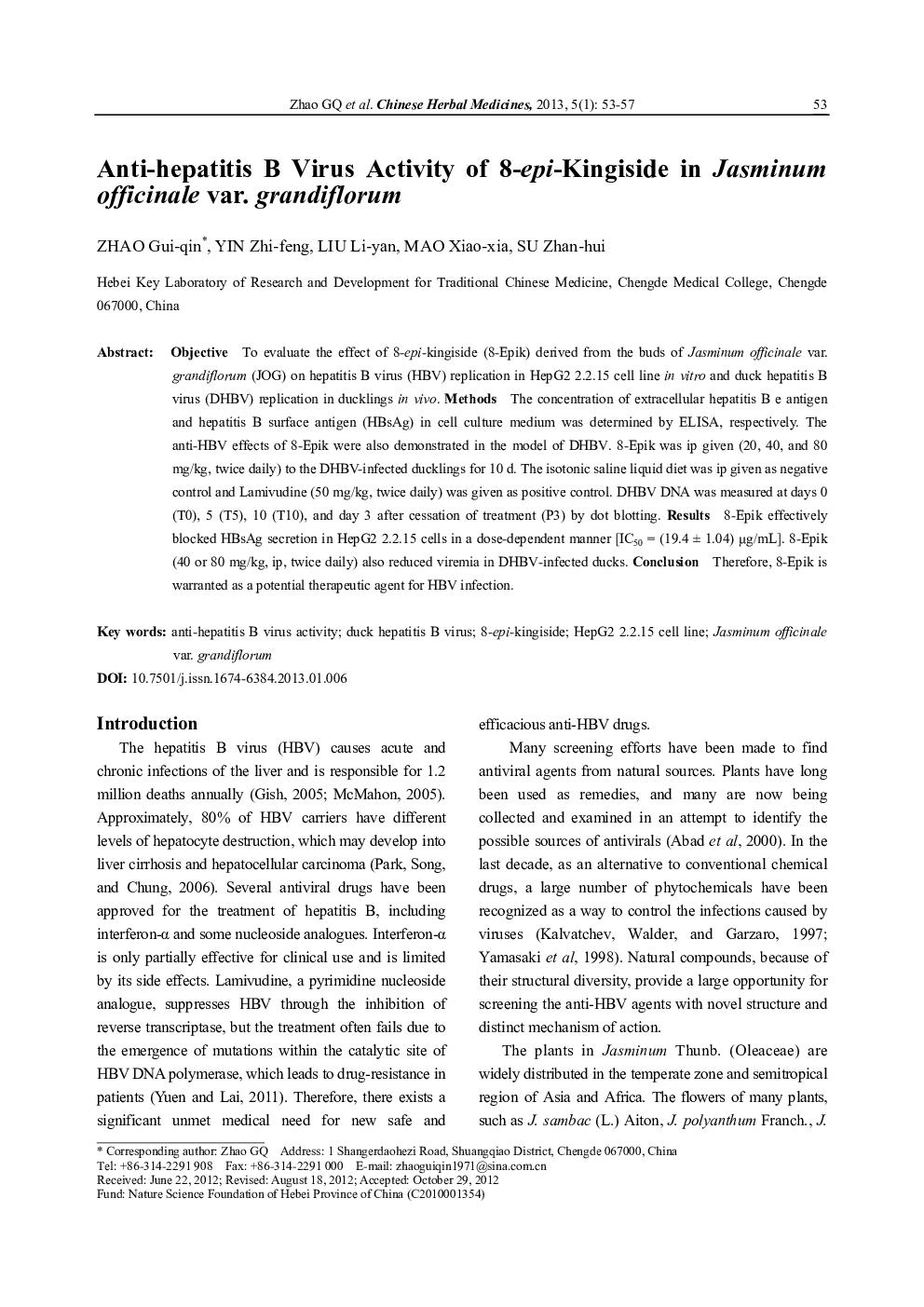| Article ID | Journal | Published Year | Pages | File Type |
|---|---|---|---|---|
| 3097930 | Chinese Herbal Medicines | 2013 | 5 Pages |
ObjectiveTo evaluate the effect of 8-epi-kingiside (8-Epik) derived from the buds of Jasminum officinale var. grandiflorum (JOG) on hepatitis B virus (HBV) replication in HepG2 2.2.15 cell line in vitro and duck hepatitis B virus (DHBV) replication in ducklings in vivo.MethodsThe concentration of extracellular hepatitis B e antigen and hepatitis B surface antigen (HBsAg) in cell culture medium was determined by ELISA, respectively. The anti-HBV effects of 8-Epik were also demonstrated in the model of DHBV. 8-Epik was ip given (20, 40, and 80 mg/kg, twice daily) to the DHBV-infected ducklings for 10 d. The isotonic saline liquid diet was ip given as negative control and Lamivudine (50 mg/kg, twice daily) was given as positive control. DHBV DNA was measured at days 0 (T0), 5 (T5), 10 (T10), and day 3 after cessation of treatment (P3) by dot blotting.Results8-Epik effectively blocked HBsAg secretion in HepG2 2.2.15 cells in a dose-dependent manner [IC50 = (19.4 ± 1.04) μg/mL]. 8-Epik (40 or 80 mg/kg, ip, twice daily) also reduced viremia in DHBV-infected ducks.ConclusionTherefore, 8-Epik is warranted as a potential therapeutic agent for HBV infection.
